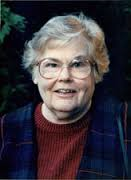
Dorothea Orem's Education
Her nursing career began at Providence Hospital School of Nursing in Washington DC, where she received a diploma certificate of nursing in 1930. She then attended Catholic University of America, where she earned her Bachelor of Science in Nursing in 1939, and her Masters of Science degree in 1945.
She received an honorary Doctor of Science degree in 1976. In addition, she has been awarded honorary doctoral degrees from Georgetown University, Incarnate Word College and Illinois Wesleyan University.
Work History
Dorothea Orem worked as a staff nurse, a private duty nurse, a nurse educator, an administrator and as a nurse consultant. She was employed as both the Director of the Nursing School and the Department of Nursing at Providence Hospital in Detroit from 1940 until 1949.
Next, she was employed by the Division of Hospital and Institutional Services of the Indiana State Board of Health from 1949 until 1957, where she developed her initial definition of nursing practice.
Orem moved to Washington DC in 1958, and she was employed by the Office of Education, U.S. Department of Health, Education and Welfare as a curriculum consultant. At this time she became more aware of deficiencies in the training practices for nurses, so she worked on a project to upgrade practical nursing.
Publications and Establishment of Business
By 1960 she published her "Guidelines for Developing Curricula for the Education of Practical Nurses" book. At this time she joined the Catholic University of America as the first Assistant Professor and ultimately became the Assistant Dean and Associate Professor of the School of Nursing. In 1980 she received the Alumni Achievement Award for Nursing Theory from the Catholic University of America.
As she continued to develop her theory in 1962, she wrote "The Hope of Nursing" then, she published "Nursing Concepts of Practice" in 1971.
At this time Orem left the university to start a consulting firm called Orem and Shield's Inc. in Chevy Chase Maryland. Her work continued with 11 nurses, who each had a different type of background. They formed the Nursing Development Conference Group due to their dissatisfaction of a lack of an organized framework of nursing knowledge. The group helped develop the framework as they developed a structured approach of nursing knowledge.
Dorothea Orem's Self-Care Nursing Theory
Dorothea Orem's Self–Care Theory was published in Nursing Concepts of Practice in 1971 and again in 1980, 1995 and 2001.
She made several major assumptions in her theory, which included:
- The people should be self-reliant and responsible for their own care and others in their family needing care
- People are distinct individuals
- Nursing is a form of action - interaction between two or more persons
- Successfully meeting universal and development self-care requisites is an important component of primary care prevention and ill health
- A person's knowledge of potential health problems is necessary for promoting self-care behaviors
- Self-care and dependent care are behaviors learned within a socio-cultural context
She also defined domain concepts in-depth, which include:
"Nursing is art, a helping service and a technology" Nurses perform actions that help individuals or groups under their care in order to change their condition or their environment. They encompass the patient's, doctors and nursing perspective of their health condition.
A primary goal of nursing is to aid the patient or family members in meeting the patient's self-care needs. Nurses also work with patients, so they can return to their normal state of health, and they try to stabilize and minimize the ill effects of chronic poor health or disabilities.
Humans are men, women and children, and the environment has chemical physical and biological properties.
Other definitions of domain concepts include; health, environment, the human being, a nursing client, nursing problems, nursing process and nursing therapeutics.
Dorothea Orem's self care deficit theory is a general theory of three related parts that include:
- Theory of self-care - This theory includes the activities initiated and performed by an individual on their own behalf to maintain life, health and well-being. The self care agency takes into account the individual's ability to care for themselves. The therapeutic self-care demand addresses the actions that must be performed for a duration of time by using valid methods and related sets of actions. Self-care requisites are three actions of related self-care.
- Theory of self-care deficit – This part of the theory specifies when nursing is required and five areas of helping are identified. They include; "acting for and doing for others, guiding others, supporting another, providing an environment to promote personal development in relation to future demands and teaching another."
- Theory of nursing system – This includes the way the patient's self-care needs are met by the nurse, the patient or both. There are three classes found in the nursing system to meet the self-care requisites of the patient, which are wholly or partly compensatory or an educationally supportive system. The general and specific roles and the scope of nursing responsibility are included. Orem recognized that members of the health care profession usually develop specialized technologies.
Self Care Deficit Theory
Orem believes the process provides a method to determine self-care deficits and to define the role of the nurse or person to meet the need.
The nursing process includes:
- Assessment – diagnosis by collecting data
- Nursing diagnosis with a plan based on a scientific rationale
- Implementation and evaluation
The strengths of this system provide a comprehensive base to the nursing practice, and it specifies when nursing is required. Dorothea Orem's self-care approach is contemporary as it encompasses the concepts of health promotion and health maintenance.
Dorothea Orem's Dedication
Dorothea Orem is one of the first nursing theorists who defined nursing practice and developed the specific criteria for nursing education. She devoted her entire life to this goal as two of her books were published after her retirement.









